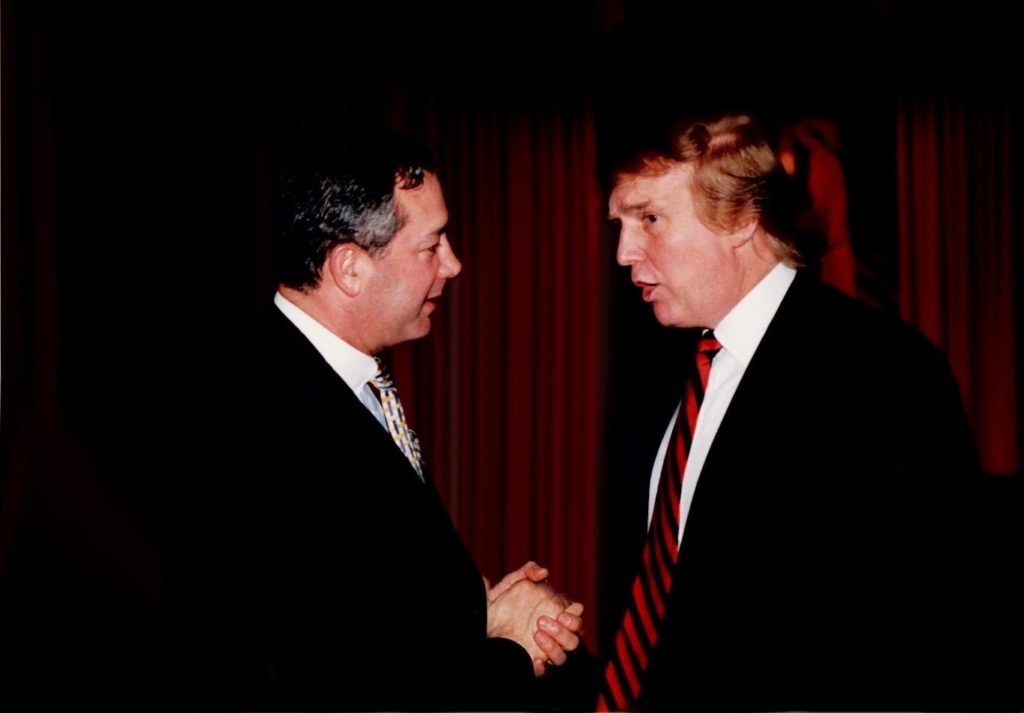The key to Donald Trump’s trade war strategy comes from an expression used by “The Godfather’s” Michael Corleone: “My father taught me many things and the most important was to keep your friends close but your enemies closer.”
At the G20 meeting in Buenos Aires on Friday, November 30, President Trump will keep China’s Xi very close. The two superpower nations are trying to avert a tariff increase that might lead to a global trade war. Xi knows the eyes of the world are upon him. But Trump is feeling confident and not only because he has a great hand and plays with house money, but also that he knows something no one else seems to recognize.
Xi needs to get a deal done.
Taunting with tariffs
The president launched a preemptive barrage to set the bidding. He hit China with a 10% tariff on $200 billion of Chinese goods, set to rise to 25% on January 1. His latest threat is to fix that level on everything coming from China, a veritable nuclear trade bomb: “If we don’t make a deal, then I’m going to put the $267 billion additional on Chinese goods at rates of 10 percent or 25 percent,” he said in an interview with The Wall Street Journal.
The stakes are high for both countries, an important factor that Trump uses to prove that he’s not bluffing. If the tariffs are imposed, prices on consumer goods sold in the U.S. from luxury items like handbags to appliances and even bicycles made in China are set to rise. Even more worrisome for the hunkered down tech community, Apple products made in China will also feel the pain, including iPhones and laptops. These would seem to be huge risks to take, especially for a Republican president.
Make a Deal, Not War
The reason why Trump appears not to care that this could lead to a trade war that might result in a recession is that Trump is looking for a deal. Xi thinks he knows what his limits are, but Trump’s tariff tactics are designed to test and revise them to Trump’s liking. The question is does this kind of gamesmanship work in global trade?
Trump just pulled it off with Mexico’s Peña Nieto on NAFTA, leaving Canada little choice but to follow suit. He played brinksmanship to switch the percentage of parts manufactured in Canada, Mexico or the US to 75 percent (starting in 2020) to qualify for zero import tariffs - a significant rise from the current 62.5 percent requirement. Also, Trump was able to stipulate that at least 40 percent of a car made in North America must also be made by a worker earning at least $16 an hour, obviously aimed at benefiting Detroit auto workers.
The reason that Xi will agree to Trump’s deal terms is not complicated. He knows that Trump knows his weakness, that Xi’s political future may rest on returning from Argentina with a photo op of a smiling Donald Trump. Trump’s media celebrity, some would say notoriety, and his profound international following is not lost on world leaders.
Trump L’oeil
Trump’s strength in dealmaking is his ability to discern the enemy’s “must have” terms and find a way to give them in return for many concessions, and then part ways on good terms.
I had the chance to see this first hand.

Back in the 1990s Trump made a powerful enemy at Merrill Lynch by threatening bankruptcy to get a deal done to his liking. The anger was palpable on an evening I was hosting the Merrill CEO at Trump’s home at Mar-a-Lago in Palm Beach (this 1997 Trump profile from The New Yorker has details). Shortly before dinner, the CEO said, “I don’t mean to be rude, but I’ll skip out before Trump gets here. I can’t stand him.”
Trump sauntered in around 7 p.m. looking dapper in a striped red and blue tie and white spread collar as he grazed from table to table glad handing the guests. Then I felt a tap on my shoulder. There was Trump with his arms around the Merrill CEO, who said to me, “What can I tell you, he’s the greatest salesman in the world.”
Trump keeps his enemies close.
For the President, global trade is just a bigger real estate transaction and threats of a trade war are designed to embarrass his counterpart to get the best terms. Does he take on some short-term risk? Of course. But the most likely outcome is that we will have to see an unending series of tweets of a smiling Donald Trump with a happy Xi Jinping and a signed agreement between the U.S. and China.
Claude Juncker, are you ready?







